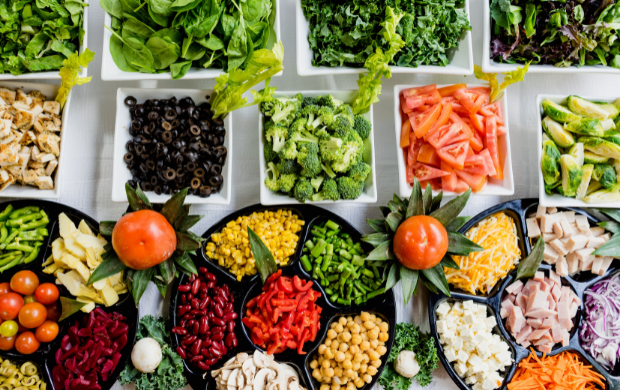When considering a change of diet, people often focus on the potential for losing or gaining weight or changing their appearance in some way. This means that nourishment and the benefits of looking after your body can sometimes be forgotten. So what sort of diet is good for your whole body? Read on to find out which diets are backed by science.
What kind of diet is best?
There isn’t one diet to suit everyone. However, several diets are backed by scientific research and shown to have health benefits for those who follow them.
The Mediterranean Diet
The Mediterranean diet has been thoroughly researched and found to be rich in monounsaturated fats, antioxidants and fibre and low in saturated fats. Featuring foods commonly eaten in Mediterranean countries, the diet is especially good for heart health. The Mediterranean diet includes plenty of fresh fruit and vegetables, legumes, nuts, whole grains beans and olive oil.
The Paleo Diet
Focusing on unprocessed foods, like those eaten by our ancestors, the Paleo diet is naturally low in carbohydrates, meaning it can aid weight loss and it has been shown to have a positive impact on blood sugar and heart disease risk.
The Vegan Diet
Going vegan involves eating an entirely plant-based diet. Research suggests that a vegan diet can help reduce the risk of heart disease, type two diabetes and cancer. It can also improve immunity and digestion, and make it easier to maintain a healthy BMI (Body Mass Index.)
Healthy Eating
It is possible to eat in a way that benefits your whole body just by making some simple changes to your existing diet. A well-rounded and balanced diet, high in nutrients will be satisfying for your hunger and benefit your health and wellbeing.
Roshni Patel, BSC (Hons) MCOptom, an expert optometrist from Lenstore says:
“The best diet for your eyes is a normal, well-rounded diet with plenty of fruit and vegetables. Vitamin A, particularly from green, leafy vegetables like kale or broccoli will help maintain healthy eyes. Sweet potatoes, carrots, and pumpkins are all also great.
Also beneficial are omega-3 fatty acids, commonly found in fish like salmon. They help to treat dry eyes and keep them healthy. You don’t need to get them from fish if you’re vegetarian or vegan either – chia seeds, flax, edamame and flaxseeds are all good sources too.”
What are nutrient-dense foods?
Nutrient-dense foods are foods that contain high amounts of nutrition without needing to eat the food in excess. We can only consume a certain amount of food per day without putting on weight or making ourselves feel unwell, so it makes sense to include nutrient-dense foods in our diet wherever possible.
Some examples of nutrient-dense foods include salmon, kale, garlic, blueberries and eggs. Liver, potatoes, dark chocolate, sardines, and shellfish are also packed with nutrients.








